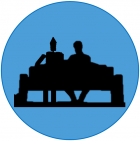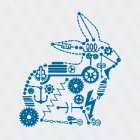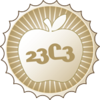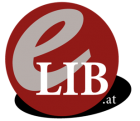DigiAppHum: Start here

Technology should help humans in their endeavors by automating and speeding up boring tasks, not force them to do things in a way they do not want to. So when is it helpful to use digital tech?
Contents
Welcome, digital traveller!
If you are here, dear reader, you might be interested in the role of technology in our lives from a humanistic viewpoint. You might also, we hope, have some basic proficiency in using digital technology - how else could you be here? We created this project to help combine those perspectives for the benefit of the users:
- On the one hand we want to provide resources on various humanistic aspects of technology use, especially the pervasive digital tools and technologies we use today.
- On the other hand, we want - and need to - show the practical side of human tool and technology use, as it is closely entwined with the theoretical observations.
- We also want to provide a toolbox for users to better achieve their goals in the digital ecosystem.
This close connection of the how and what was also recognised by Friedrich Nietzsche, who in his later years tried out a typewriter to write down his ideas. He observed, that due to the different input method the flow of his thoughts was also written down differently and that the form of input influenced the output.[1] This is something that is also true for modern digital word processors and a great example for the dilemma we as humans face when using tools.
This page offers some pointers on how we think you might use the content of this project and what we think are important questions to ask, tools to use and skills to have. We love help in the form of feedback on how you actually use the content, your own guides, articles or any other participation you think might help us along.
What users need
As stated above, it is not enough to be just visitors of the digital ecosystem - if they want to be active participants that can - to some degree influence their digital environment, they have to become users. User means, that a person puts in the time, will and energy to not only read and think about aspects of technology but is also trying it out. As many digital concepts are still evolving, the practical experiences are the best way to grasp the concepts, pitfalls and promises.
Practical skills
To give some idea of some basic skills we have added the online lessons and open educational resources for the Internet and Computing Core Certification (IC3) from wikiversity below. The IC3 is a global certification program designed to certify an individual's digital literacy skills associated with basic computer and Internet use.[2] The certification includes three exams: Computing Fundamentals, Key Applications, and Living Online. They all contain useful information and should give some idea of necessary skills.
Below you can find the links to the content online or you can also download a PDF-Version for offline use.
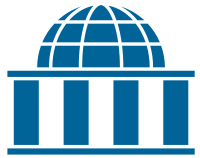 |
Living Online |Living Online is one of three exams included in the Internet and Computing Core Certification (IC3). The exam covers network fundamentals, electronic communication, Internet fundamentals, and computer use and safety. This module comprises four lessons that help learners prepare for the Living Online exam. Each lesson includes Wikipedia readings, YouTube videos, and hands-on learning activities. |
 |
Computing Fundamentals |Computing Fundamentals is one of three exams included in the Internet and Computing Core Certification (IC3). The exam covers computer hardware, computer software, and using an operating system. This module comprises three lessons that help learners prepare for the Computing Fundamentals exam. Each lesson includes Wikipedia readings, YouTube videos, and hands-on learning activities. |
 |
Key Applications |Key Applications is one of three exams included in the Internet and Computing Core Certification (IC3). The exam covers common program functions, word processing, spreadsheets, presentation software, database software, and document collaboration. This module comprises six lessons that help learners prepare for the Key Applications exam. Each lesson includes Wikipedia readings, YouTube videos, and hands-on learning activities. |
 |
Absolute Beginners: Computer Skills |Key Computer skills are essential in order to utilize computers and related technology efficiently. This course will help you learn basic computer skills, including typing and using a mouse. After you've mastered the basics, this course will help you learn about Internet and email, computers, word processing, multimedia, and spreadsheets. |
Theoretical background
Humans are tool users. That means that technology plays a mayor aspect in our lives. The goal is to make our lives easier and free resources for other tasks. But not all technology - as well-meaning as the idea behind it was - also achieves this. The combination of rapid development and commercialisation has fostered an unhealthy addiction to technology to such an extent, that society has to actively intervene to teach people how to lessen the dependency on their digital helpers. Some of the tools produced are also using excessive amounts of valuable resources, that go against a sustainable future development.
These realities make it important to take a critical look at the underlying questions - and the hard answers. Philosophy of technology studies characteristics of technology and its relations to human societies. Central are questions of ethics, man-machine interaction, Artificial Intelligence (AI) and political aspects. As an introduction, the Internet Encyclopedia of Philosophy and the Stanford Encyclopedia of Philosophy provide great introductions to the various sub-fields and the central questions that will remain with regular users of this project while trying to interconnect theories with real-life scientific advances and various technologies in their lives.
 |
Philosophy of Technology |If philosophy is the attempt “to understand how things in the broadest possible sense of the term hang together in the broadest possible sense of the term”, as Sellars (1962) put it, philosophy should not ignore technology. It is largely by technology that contemporary society hangs together. [...] |
 |
Philosophy of Technology |Like many domain-specific subfields of philosophy, such as philosophy of physics or philosophy of biology, philosophy of technology is a comparatively young field of investigation. It is generally thought to have emerged as a recognizable philosophical specialization in the second half of the 19th century [...] |
What this project has to offer
The Digital Humanism & Applied Humanities Project offers basic practical guides and information, theoretical background and tools from everyday life. From this information, users should get some understanding on when an offline approach is preferable, on how to control the digital helpers they want to use and what consequences the use has for them as humans in digital times.
We also want and need users willing to participate and act as multipliers and teachers for those around them, so the number of users, who can actively influence their digital environments and have more knowledge about it grows.
New Articles
Privatheitsschutz Hannah Arendt und die gluecklichen Wenigen - Moenig
Dass unsere Privatheit schützenswert ist, wird nicht erst seit den Enthüllungen der letzten Jahre durch diverse Whistleblower diskutiert. Was dieses Schützenswerte genau ist, scheint jedoch gar nicht so eindeutig zu sein.
Tags: All
Hacking is a mindset not a skillset - Snook
Tanya Snook explains why Hacking is a mindset, one that is useful in online and real world environments.
Tags: All
Suchen und Finden im Internet Leitfaden elektronische Recherche- Hausar
Dieser Text hilft Usern im Netz Informationen zu finden.
Tags: All
Ethik in einer digitalisierten Welt Netzwerke Theorie Praxis - Karban
Netzwerke in Theorie und Praxis - Netzwerke, wie sie entstehen und wie sie wirken. Chancen und Risken einer *digitalisierten Welt* aus dem Blickwinkel von Ethik und Philosophie.
Tags: All
Chaos und Kritische Theorie Adorno, Wilson und Diskordianismus - Kulla Leganovic
Adorno, Wilson und Diskordianismus: Im Vortrag wird der Versuch unternommen, die Kritische Theorie dem diskordischen Witz auszusetzen und den Diskordianismus der Ideologiekritik.
Tags: All
Kontrolle und Ueberwachung Warum wir uns so gerne ueberwachen lassen - Ketzer
Erhellendes aus Philosophie und Soziologie zur Klärung des Phänomens steigender Kontrolle und Überwachung
Tags: All
Macht und Raum in virtuellen Welten Misstraue Autoritaeten foerdere Dezentralisierung - Denker
Wie können Macht und Raum zusammen gedacht werden?
Tags: All
Gebrauchsanleitung fuer Archive Einstieg in die Quellenrecherche - Burkhardt
Dieser Text hilft Personen bei Ihren Recherchen in einem (Papier-)Archiv.
Tags: All
Gebrauchsanleitung fuer Archive 2 Der Weg der Recherche - Burkhardt
Dieser Text hilft Personen bei Ihren Recherchen in einem (Papier-)Archiv. Teil 2.
Tags: All
Endnotes
- ↑ See: Nietzsche, F. W., Günzel, S., & Schmidt-Grépály, R. (2003). Schreibmaschinentexte: Vollständige Edition ; Faksimiles und kritischer Kommentar. Weimar: Bauhaus-Universität Weimar, Universitätsverlag.
- ↑ Wikipedia: IC3 (certification)

